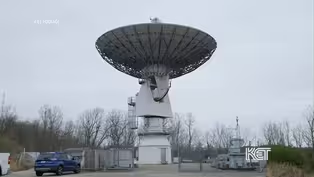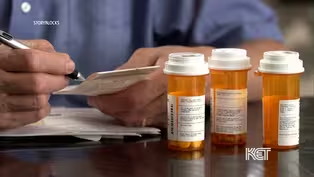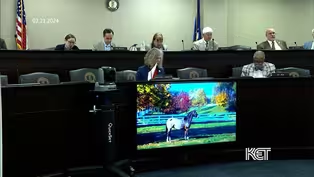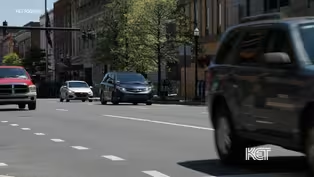
Child Labor Laws
Clip: Season 2 Episode 190 | 1m 57sVideo has Closed Captions
Lawmakers advance bill loosening restrictions on how much some teens can work on the job.
Lawmakers advance bill loosening restrictions on how much some teens can work on the job.
Problems playing video? | Closed Captioning Feedback
Problems playing video? | Closed Captioning Feedback
Kentucky Edition is a local public television program presented by KET

Child Labor Laws
Clip: Season 2 Episode 190 | 1m 57sVideo has Closed Captions
Lawmakers advance bill loosening restrictions on how much some teens can work on the job.
Problems playing video? | Closed Captioning Feedback
How to Watch Kentucky Edition
Kentucky Edition is available to stream on pbs.org and the free PBS App, available on iPhone, Apple TV, Android TV, Android smartphones, Amazon Fire TV, Amazon Fire Tablet, Roku, Samsung Smart TV, and Vizio.
Providing Support for PBS.org
Learn Moreabout PBS online sponsorshipA bill to loosen restrictions on how much some teens can work on the job is advancing in the state legislature.
Currently, 16 and 17 year olds in the state can only work 6 hours on a school day or 8 hours on a non-school day.
They can work 30 hours a week during the school year unless their grades and parents permit for more hours and they can work as late as 10:30 p.m. on a school night or 1 a.m. on a non-school night.
House Bill 255 sponsored by Georgetown Republican Representative Philip Pratt, would undo those rules, bringing Kentucky in line with federal child labor laws.
Critics say without those protections, employers could exploit teen workers.
Louisville Democratic Representative Sarah Stocker also argued the bill could lower funding for public schools in Kentucky.
One of the components of our Sikh formula is the average daily attendance.
That means that districts get their Sikh money based on how many kids show up for the day.
And when those numbers start to lower, it will have a ripple effect throughout the public education system that will impact the students who don't drop out, who continue to show up.
If we're so concerned about Sikh formula, when we shut the schools down for COVID and went to virtual learning.
We know that 28,000 students did not return to classroom.
That supports hurting our Sikh formula.
Many kids in their districts when they could not go to school, they did go and they worked and then they could not get them back.
That is a problem.
House Bill 255 passed the House, the full House and a vote of 6236.
It now heads to the Senate for consideration there.
Video has Closed Captions
Clip: S2 Ep190 | 3m 25s | This year’s priority legislation, Senate Bill 1, focuses on boosting academic research. (3m 25s)
Video has Closed Captions
Clip: S2 Ep190 | 2m 52s | New program aims to get more young people considering careers in the aviation industry. (2m 52s)
Video has Closed Captions
Clip: S2 Ep190 | 3m 13s | New bill would ban drug treatment facilities from accepting some out of state patients. (3m 13s)
Video has Closed Captions
Clip: S2 Ep190 | 2m 32s | Jurors could make more money for fulfilling their civic duty under a senate bill. (2m 32s)
Video has Closed Captions
Clip: S2 Ep190 | 2m 39s | The Lexington-Fayette County Health Department releases community health survey results. (2m 39s)
Video has Closed Captions
Clip: S2 Ep190 | 2m 54s | Lawmaker wants an embarrassing mislabeling of Kentucky's state rock and mineral fixed. (2m 54s)
Providing Support for PBS.org
Learn Moreabout PBS online sponsorship
- News and Public Affairs

Top journalists deliver compelling original analysis of the hour's headlines.

- News and Public Affairs

FRONTLINE is investigative journalism that questions, explains and changes our world.












Support for PBS provided by:
Kentucky Edition is a local public television program presented by KET





